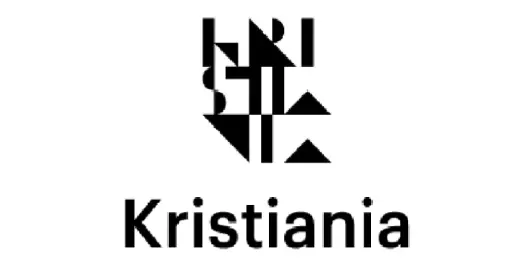Ledig stilling på Universitetet i Oslo
Blindern og Urbygningen (Foto: Wikimedia og Colourbox)
Postdoctoral fellow in electrophysiology (cognitive neuroscience) of language
Deadline: 16.09.2020
Universitetet i Oslo
The University of Oslo is Norway’s oldest and highest ranked educational and research institution, with 28 000 students and 7000 employees. With its broad range of academic disciplines and internationally recognised research communities, UiO is an important contributor to society.
The Department of Special Needs Education is one of the three departments at UiO's Faculty of Educational Sciences.
The department has today approximately 25 permanent employees that work with research, 14 temporary research fellows and postdoctoral fellows, in addition to 12 administrative employees. The department has approximately 800 students distributed between bachelor- and master’s degree studies in Special Needs Education, master’s degree studies in Special Needs Education, as well as PhD-studies.
Job description
Applicants are invited for a 3-year position as Postdoctoral Fellow in cognitive neuroscience of language to be based at the Oslo Special Education and Learning Lab (SPeLL), Department of Special Needs Education, University of Oslo. The position is related to two prioritized subject areas at the department: cognitive neuroscience in special needs education and language learning. Cognitive neuroscience in special needs education is a multidisciplinary field focusing on the relation between brain processes and developmental and acquired learning disabilities on the other. Neuroscientific methods hold potential in the study of learning disorders as they enable the measurement of learning as it happens in real time and may help pinpointing when during the learning process that learning breaks down. Language development and language disorders is a prioritized area, which is central in research at the department and in three of its master programs.
The appointed postdoc should be affiliated with one of the department’s research groups and also with the department’s lab Oslo SPeLL. The lab maintains the department's scientific instruments, lab facilities, and supports projects though app development, test standardization, and access to volunteer research participants. In addition, Oslo SPeLL provides educational support through workshops and training for students and researchers on instrument use. Currently available instruments include two new 32-channel EEG instruments (combined as one 64-channel EEG), advanced eye-tracking instruments, biophysical sensors, and a large battery of behavioral assessment materials. Further information can be found on this website.
The primary focus of the postdoctoral position is to use EEG methods in the study of language learning processes in typical and atypical children and adults. The post involves developing and carrying out research projects within this research area, independently and in collaboration with other researchers at the department. Typically, this will entail developing experimental designs, recruitment, preparation of visual and auditory stimulus materials, testing of children and adults, data analysis, and preparation of manuscripts for publication. Experience in working with children is an advantage. The candidate is expected to train and supervise students at the department who are interested in doing EEG-related master’s theses or projects.
The successful candidate must hold a Ph.D. or equivalent degree in cognitive neuroscience, psychology, education, neurolinguistics or psycholinguistics, and should have experience using EEG methods (e.g. ERPs, time-frequency EEG analysis), preferably with children. Experience in programing and statistical analyses (MATLAB, R) is an advantage.
More about the position
The appointment is a fulltime position and is made for a period of up to three years, 10% of which is devoted to required duties, usually in the form of teaching activities. Depending on the qualifications of the candidate, the period may be extended to four years, 25 % of which is devoted to required duties, usually in the form of teaching activities at the department. Postdoctoral fellows who are appointed for a period of four years are expected to acquire basic pedagogical competency in the course of their fellowship period within the duty component.
The main purpose of the fellowship is to qualify researchers for work in higher academic positions within their disciplines.
Please see the guidelines concerning appointment to post-doctoral and research positions at the University of Oslo.
Qualification requirements
- Applicants must hold a PhD or a degree equivalent to a Norwegian doctoral degree in cognitive neuroscience, psychology, education, neurolinguistics, psycholinguistics or related field. The doctoral dissertation must be submitted for evaluation by the closing date. Appointment is dependent on the public defense of the doctoral thesis being approved
- Fluent oral and written communication skills in English
- Experience with electrophysiological methods (data collection and analysis)
- Experience with data handling and GDPR
The following qualifications will count in the assessment of the applicants:
- Knowledge of a Scandinavian language is an advantage
- Programming experience
- Competency with statistical methods
- Experience with research involving children
- Experience from the field of language processing and/or language acquisition
Personal skills
- Team working and communication skills
- Creativity, curiosity, drive, and general interest in cognitive neuroscience
We offer
- Salary NOK 523 200 – 605 500 per annum depending on qualifications in position as Postdoctoral Fellow (position code 1352)
- A professionally stimulating working environment
- Attractive welfare benefits and a generous pension agreement, in addition to Oslo’s family-friendly environment with its rich opportunities for culture and outdoor activities
How to apply
The application must include:
- Cover letter (statement of motivation, summarizing scientific work and research interest)
- A project description relevant to the position (8-10 pages including references). This description could include plans for use of specific EEG/ERP paradigms measuring e.g. word learning, grammar learning, statistical learning or studies measuring the effects of language interventions. In this context it may be relevant to describe specific language-related ERP components (e.g. the N400 or P600) or EEG modulations. The project description should contain a literature review, one or more research questions, a methods section and a progress plan
- CV (summarizing education, positions, pedagogical experience, administrative experience and other qualifying activity)
- Copies of educational certificates (academic transcripts only)
- A complete list of publications
- Up to 3 academic works that the applicant wishes to be considered
- List of reference persons: 2-3 references (name, relation to candidate, e-mail and phone number)
The application with attachments must be submitted in our electronic recruiting system. Foreign applicants are advised to attach an explanation of their University's grading system. Please note that all documents should be in English or a Scandinavian language.
In assessing the applications, special emphasis will be placed on the documented, academic qualifications, the project description as well as the candidate’s motivation and personal suitability. Interviews with the best qualified candidates will be arranged.
It is expected that the successful candidate will be able to complete their projects in the course of the period of employment.
Formal regulations
Please see the guidelines and regulations for appointments to Postdoctoral fellowships at the University of Oslo.
No one can be appointed for more than one Postdoctoral Fellow period at the University of Oslo.
According to the Norwegian Freedom of Information Act (Offentleglova) information about the applicant may be included in the public applicant list, also in cases where the applicant has requested non-disclosure.
The University of Oslo has an agreement for all employees, aiming to secure rights to research results etc.
The University of Oslo aims to achieve a balanced gender composition in the workforce and to recruit people with ethnic minority backgrounds.
Contact information
Apply for position















